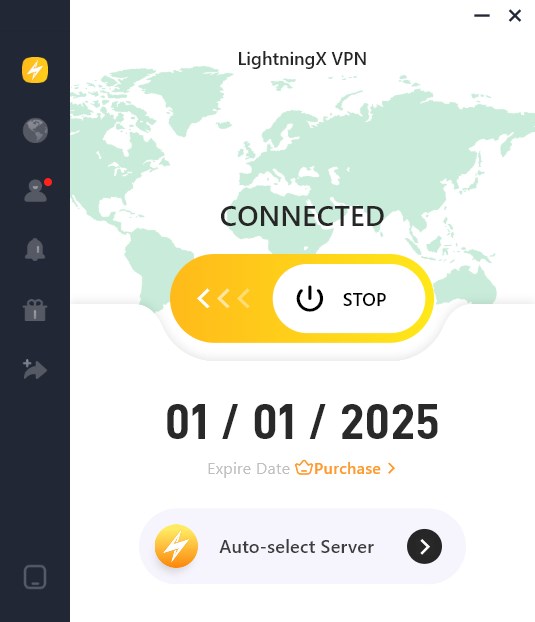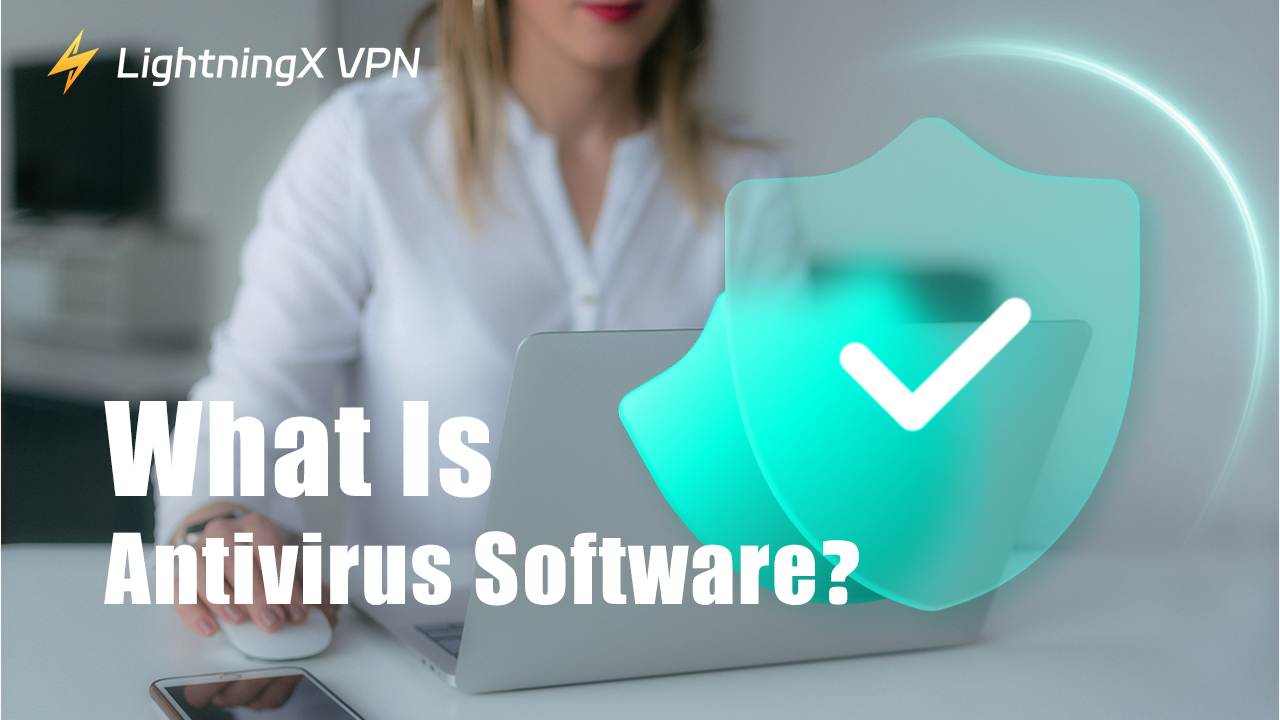Undoubtedly, we rely on computers, smartphones, and tablets for almost everything. From working and studying to socializing and entertainment, the internet connects us to the world.
However, this connectivity also brings risks. Viruses, malware, and other threats lurk online, attempting to infect our devices and steal our personal information. This is where antivirus software comes in. But what exactly is antivirus software, and why do we need it? This post will explain everything to you.
What Is Antivirus Software?
Antivirus software is a program designed to detect, prevent, and remove harmful programs like viruses, malware, spyware, and ransomware from your device. It acts like a shield, protecting your computer or mobile device from various threats that can damage your data or steal sensitive information. Think of it as a security guard for your device, always working in the background to keep you safe.
What Does Antivirus Software Protect Against?
To understand why antivirus software is so important, it’s helpful to know what kinds of threats it can protect you from. Here are some common types of malware that antivirus software targets:
Viruses: These are harmful programs that attach themselves to legitimate files and spread when you open them. They can corrupt data, slow down your system, or even delete important files.
Spyware: This type of malware spies on your phone, gathering sensitive information like your passwords, credit card numbers, or browsing history without your knowledge.
Ransomware: Ransomware locks you out of your device or data, demanding payment (a ransom) to restore access. It’s one of the most dangerous forms of malware.
Trojans: Named after the famous Trojan Horse, these programs disguise themselves as useful software but are actually harmful. Once installed, they can give hackers access to your device.
Adware: While not always as dangerous as other forms of malware, adware bombards you with unwanted ads, which can slow down your device and make it difficult to use.
Different Types of Antivirus Software
Here are the explanations for different types of antivirus software based on protection methods, installation types, and users.
Protection Method Types:
- Signature-based: Works like a security guard with a photo book – checks files against a list of known viruses.
- Heuristic-based: Acts like a detective – looks for suspicious behavior patterns.
- Behavior-based: Watches how programs act in real-time, like a security camera.
- Cloud-based: Uses internet databases to check threats, like asking experts online.
Installation Types:
- Standalone: Just basic virus protection, like a simple door lock.
- Internet security suites: Complete package with multiple tools, like a home security system.
- Endpoint protection: Protects all devices in a network, like security for an entire building.
- Network-based: Guards the whole network, like a security fence around a property.
User Types:
- Home/Personal: Simple, easy-to-use protection for individual users.
- Small Business: Balanced protection for small teams.
- Enterprise: Heavy-duty protection for large companies.
- Government/Military: Maximum security with special features.
How Does Antivirus Software Work?
Antivirus software uses several techniques to identify and remove threats. These techniques work together to ensure your device stays safe from potential dangers.
1. Scanning for Viruses
Antivirus software regularly scans your device for known viruses or suspicious activity. These scans can happen automatically in the background or when you schedule them. The software compares the files on your device to a database of known malware signatures (patterns of malicious code). If a match is found, the antivirus will take action to remove or quarantine the threat.
2. Real-Time Protection
One key feature of antivirus software is real-time protection. This means that the antivirus scans a file or opens a link for potential threats as soon as you download it. If something looks suspicious, the software will block it before it can harm your device.
3. Heuristic Analysis
In addition to looking for known threats, antivirus software also uses heuristic analysis to identify new or unknown viruses. This technique analyzes the behavior of files to determine if they might be harmful, even if they aren’t yet recognized by the antivirus database.
4. Quarantining and Removing Threats
When antivirus software detects a threat, it will often move the infected file to a quarantine area. This prevents the malware from spreading or causing further damage. Once quarantined, the software will either remove the threat or prompt you to decide what to do with the file.
Why Does Antivirus Software Matter?
Now that we know what antivirus software does, the next question is: why do you need it?
1. Protection from Cyber Threats
As more of our lives move online, the risk of cyber threats grows. Without antivirus software, your personal information, such as passwords, financial data, and personal photos, is at risk of being stolen. Hackers can use this information for identity theft, fraud, or even to hold your data for ransom.
2. Prevent Device Slowdowns
Malware can also slow down your device by using up its resources. You might notice your computer or smartphone becoming sluggish, crashing more often, or taking longer to perform tasks. Antivirus software helps keep your device running smoothly by removing any harmful software that may be causing performance issues.
3. Safeguard Your Data
Your data is one of your most valuable assets. Imagine losing important documents, family photos, or school projects because of a virus or ransomware attack. Antivirus software helps prevent these disasters by keeping your data secure and ensuring that you don’t lose valuable files to malware.
4. Peace of Mind
Perhaps the most significant benefit of antivirus software is the peace of mind it provides. With a good antivirus program running on your device, you can browse the web, download files, and communicate online without constantly worrying about potential threats.
Is Antivirus Software Safe?
Yes, antivirus software is generally safe, as long as you choose reputable brands. While antivirus software provides essential security, using a VPN can enhance your privacy protection. A VPN encrypts your internet traffic and hides your real IP address, preventing third parties (like ISPs, hackers, and websites) from tracking your online activities.
LightningX VPN is highly recommended for its reliable service and strong security features. Here are some reasons why it stands out:

- Strong encryption: Uses robust encryption protocols to keep your data safe from prying eyes.
- No-log policy: It does not store any logs of your online activities, ensuring your privacy is maintained.
- Fast seeds: Offers fast connection speeds, allowing you to stream, download, and browse without significant lag.
- User-friendly interface: Its simple operation and one-click connection make it accessible for both beginners and advanced users.
- Multiple server locations: With 2000+ servers in more than 50 countries, you can easily connect to different regions to access geo-restricted content.
FAQs – What is Antivirus Software?
Q1. Does Antivirus Software Slow Down My Computer?
Modern antivirus software is optimized for performance. However:
- Full Scans can temporarily slow down older devices.
- Lightweight or cloud-based antivirus options (e.g., Bitdefender) minimize performance issues.
Q2. Are Built-in Antivirus Tools (like Windows Defender) Enough?
Windows Defender offers decent protection for casual users, but it may lack:
- Advanced features like ransomware protection.
- Regular updates for the latest threats.
For enhanced security, consider supplementing it with a premium antivirus program.
Conclusion
Ultimately, antivirus software is a must-have tool for anyone who uses a computer or smartphone. It protects your personal information, keeps your device running smoothly, and helps you avoid the headaches of dealing with malware. With the right antivirus in place, you can confidently surf the online world without constantly worrying about your security.


















